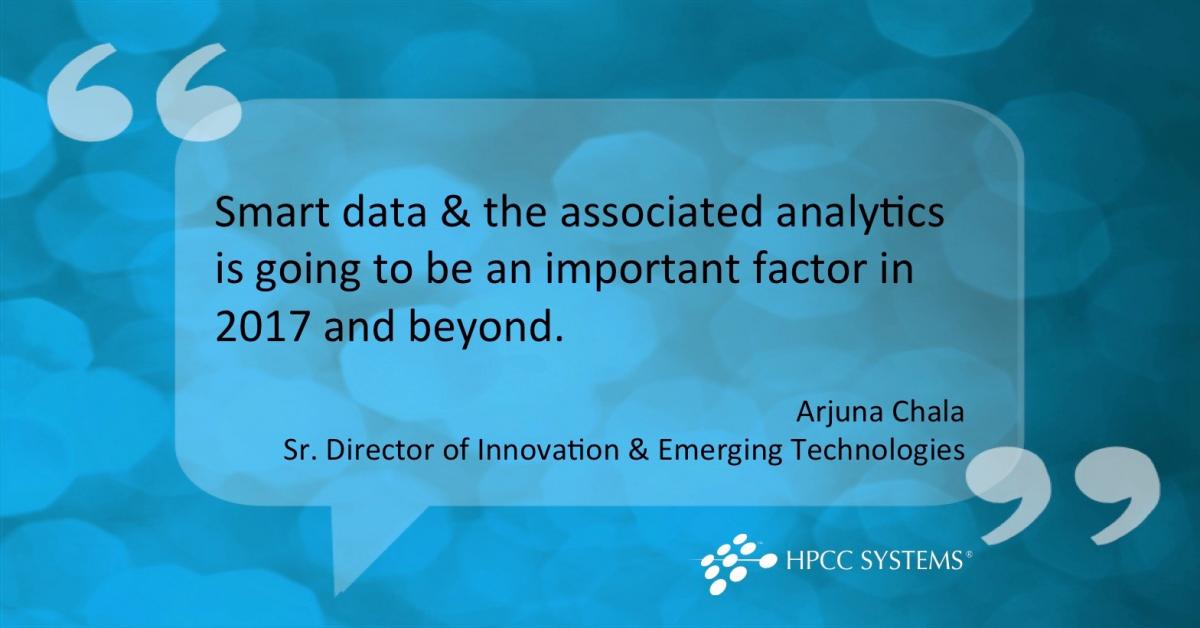Smart Data & the Associated Analytics
It is not surprising that health insurance providers are looking at smart watches (and the inherent smart data) as a promising technology that would act as an enabler to encourage their customers to lead a healthy lifestyle. For a provider, healthier customers will mean a reduction in the overall cost for healthcare and increasing the profitability of the service providers. Aetna, for example, recently started to offer their customers discounts to Apple watches. In essence laying the foundation to monitor and deliver the data to provide proactive healthcare. This is analogous to an Internet company laying the fiber optic to a consumers house, in essence laying the ground work for future business with the customer.
Smart data is set to revolutionize many industries in 2017 and the following years. With immediate traction being seen in supporting autonomous vehicles, home appliances, industrial floors and healthcare. It is most relevant in healthcare as it directly contributes to saving lives and better living. There are several reports about how Apple watches have already resulted in saving many lives because users were able to take early and immediate action to prevent a life threatening event. Whether it is detecting immediately actionable concerns such as abnormal heart beat and blood pressure, or detecting a systematic longer term downward trend like lack of exercise, smart data and the associated analytics is going to be an important factor in 2017 and beyond.

